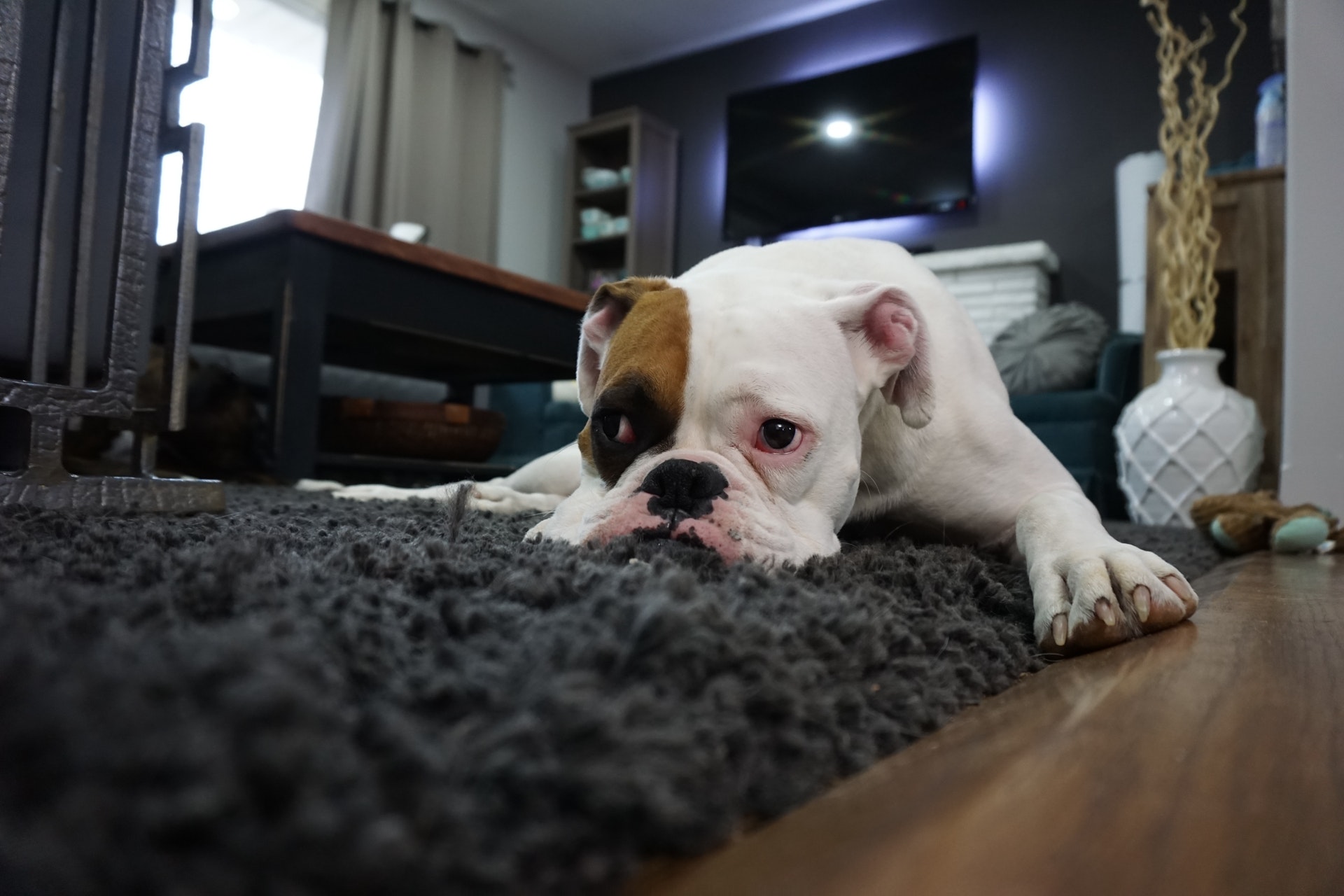
Have you seen a dog scoot around with just its front legs, dragging its butt on the ground? This raises the questions why do dogs drag their butts on the floor? This embarrassing and annoying behavior could happen outdoors or even at home on the carpet, leaving some unsightly stains. This looks like something out of the norm and something a dog wouldn’t usually do. So why do dogs drag their butts on the ground? Let’s find out.
Dogs dragging their butts on the floor or scooting isn’t done just because its fun. A dog that does this is feeling uncomfortable and is trying to relieve the irritation. While some may think that this could be a dog’s response to a pinworm infection like those in children, it is not the case as dogs are not susceptible to pinworms.
If you’ve never seen this act of dogs dragging their butts on the floor check out this popular compilation video:
So, what are the causes to “scooting” in dogs?
Anal Sac Inflammation
This issue is one of the more common causes for scooting in dogs. Anal sacs are small sacs on the sides of the anus at the 4 and/or 8 o’ clock positions. Anal sacs have glands that secrete a dog’s scent and are what dogs sniff at when greeting each other. In a way, anal sacs are like a dog’s ID card!
In healthy dogs, the anal sacs empty out during defecation. If a dog does not completely empty out its bowels, the remaining stool could get impacted and cause inflammation. A dog may drag its butt around to try and empty its anal sacs or relieve the irritation. If left untreated, it may get infected.
If scooting has been observed a few times a day, or if there are signs of swelling followed by a foul odor, we recommended to take the dog to the veterinarian as soon as possible to seek treatment and nip the infection in the bud. If an infection has detected early, the veterinarian will prescribe a course of antibiotics, apply warm compresses and some anti-inflammatory medicine. Have it checked out a little late and some surgery may be required.
Tapeworms
While dogs are not susceptible to pinworms, tapeworms could be a cause of scooting. A dog may get a tapeworm infection by ingesting its host, usually fleas. Some tapeworm segments may be left around the rectum and a dog may just try to drag it off to relieve the discomfort it causes. This issue is simple to detect and diagnose as the tapeworm segments are visible in the affected area and in the stool.
Treatment for this issue could be self-performed with an easily available medication called Prozequantal or carried out by a veterinarian.
Matted Hair
Dingleberries. While some of us think of this as a problem with toilet paper, this is actually a genuine problem in long-haired dogs as stool and matted hair could get caught around the rectum. If not groomed regularly, this would be a problem in the long run as stool can accumulate in the matted hair, causing the dog to scoot. Proper grooming and cleaning, self-performed or by a visit to a professional pet groomer is an effective fix for this issue.
Allergies
Some dogs have allergies and it may be set off when the dog unknowingly consumes food it is allergic to. For some dogs, things such as insect bites can trigger an allergic reaction. If a dog is allergic to certain spores or pollen, sitting on the surface with allergens present can cause some itching. When uncertain if an allergic response is the cause of scooting, it is best to consult a veterinarian to check and rule out any other underlying causes.
Constipation
Apart from food allergies, dogs that have a diet lacking in fiber and water may get constipated and drag their butts on the ground. This issue is similar with the anal sacs as there is not enough pressure created during bowel movement to fully relieve itself.
Conclusion
These causes of scooting in dogs can be easily treated by your veterinarian. While some pet groomers may be able to express the anal sacs to provide some relief, it is generally not required. In this case, expertise by a veterinary professional is recommended as the anal sacs are delicate. In untrained hands, manually touching the anal sacs could cause some injury; a scenario we all want to avoid. Keep it safe and in time, your dog won’t be dragging its butt on the ground.
These causes of scooting in dogs can be easily treated by your veterinarian. While some pet groomers may be able to express the anal sacs to provide some relief, it is generally not required. In this case, expertise by a veterinary professional is recommended as the anal sacs are delicate. If you’re visiting a vet, it’s also a good idea to have insurance for your pup!






